No one wants to think about their dog getting sick, and with the right care, you can do a lot to keep your dog healthy and happy. However, there are some conditions that can occur even in healthy dogs as a result of their size, breed and other genetic factors. Knowing which conditions are most likely in your dog and how to recognize their symptoms allows you to treat them right away should they come up, giving your dog the best chance at recovering. Here are some conditions that are most common in larger breeds of dogs.
Digestive Problems
Digestive problems may occur in large dogs because of their big appetite, so many of these problems can be prevented by careful regulation of your dog’s diet. Large dogs should be fed in several small meals to prevent over-eating, and they should not exercise immediately after eating. Some digestive issues, such as vomiting and diarrhea, can result from sudden changes in diet and resolve themselves once your dog adjusts; consult your veterinarian if these symptoms are persistent.
Other digestive issues can be deadly. Gastric torsion, also known as “bloat” is a condition that causes the stomach to expand due to excess gas. It can occur regardless of age or gender, most often in large-breed and/or deep-chested dogs, and results in a lack of blood supply to the stomach, and a twisted and enlarged spleen. If you notice that your dog has difficulty breathing after a large meal and seems to be trying to vomit or has a swollen abdomen, seek emergency help immediately.
Arthritis Prevention
Many large breeds are prone to developing arthritis, a painful inflammation of the joints, as they age. However, there are some thing you can do to prevent arthritis. Larger dogs tend to develop arthritis because of their size and their tendency to gain weight as they age. Therefore it is important to regulate your dog’s diet very carefully as he ages. Consult your local pet store on the best food and dietary supplements for your dog. You should also be sure that your dog gets regular exercise. Leash walking, swimming, slow jogging and going up and down stairs are all examples of healthy, low impact exercise for older dogs. You should also provide your dog with a comfortable, warm place to sleep inside your home. Sleeping on a floor, even if it is carpeted, is hard on a dog’s joints and makes them stiff.
Arthritis Treatment
If your dog develops arthritis you should continue all preventive measures in order to slow its effects. Keep your dog out of cold, damp weather conditions and dress him appropriately in warm clothing if you go outside. Do all you can to make daily activity less painful; you can elevate food and water bowls if your dog has neck or back stiffness. Many people also invest in ramps if they have steps leading outside so that dogs can relieve themselves more easily. In addition, you can consult your veterinarian on massage and physical therapy options to relax stiff muscles and maintain a good range of motion, as well as on different medicines and helpful dietary supplements.
Hip Dysplasia
Hip dysplasia is a joint disorder that is common in many large dog breeds. It results from the abnormal development of the hip joint in puppies, causing lack of cushioning and flexibility in the joint, and thus cartilage damage and arthritis. Displasia can occur in puppies, but usually does not occur until later in a dog’s life. Indicators of this disease include soreness after rising from rest, reluctance to exercise, bunny-hopping or other abnormal forms of walking. The condition can be confirmed by an x-ray. Although there is no cure for Displasia, there are treatments that alleviate the pain. Weight control and exercise are the most important ways of reducing the effects of dysplasia. For mild cases, there are a variety of medications you can administer to reduce inflammation, pain and joint wear. If these approaches are not enough, there are also surgical procedures that can modify or repair the hip joint.


